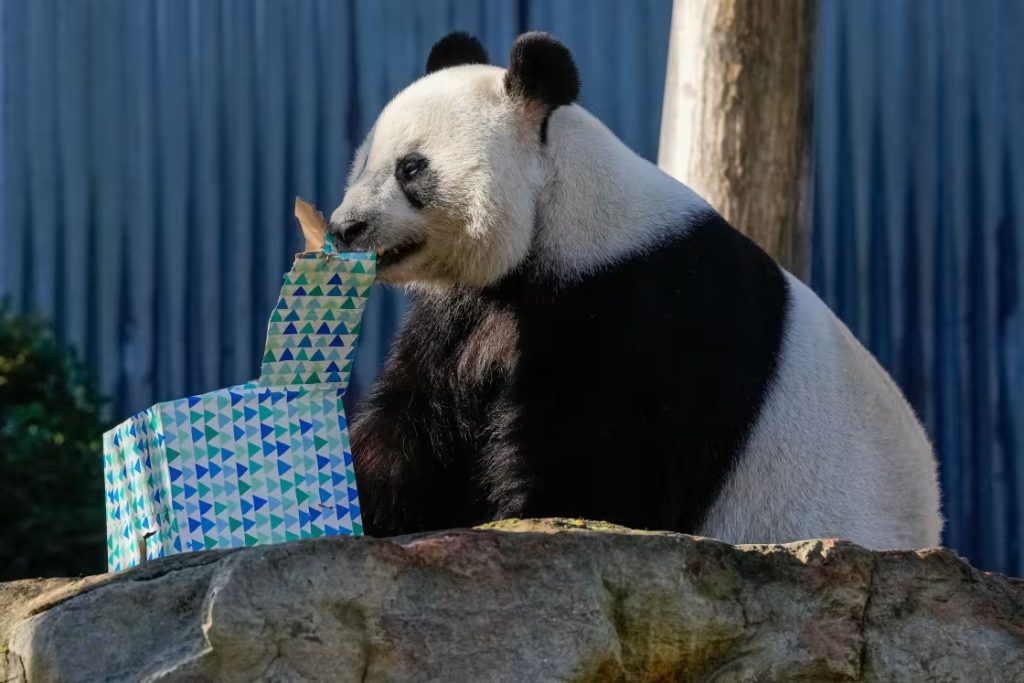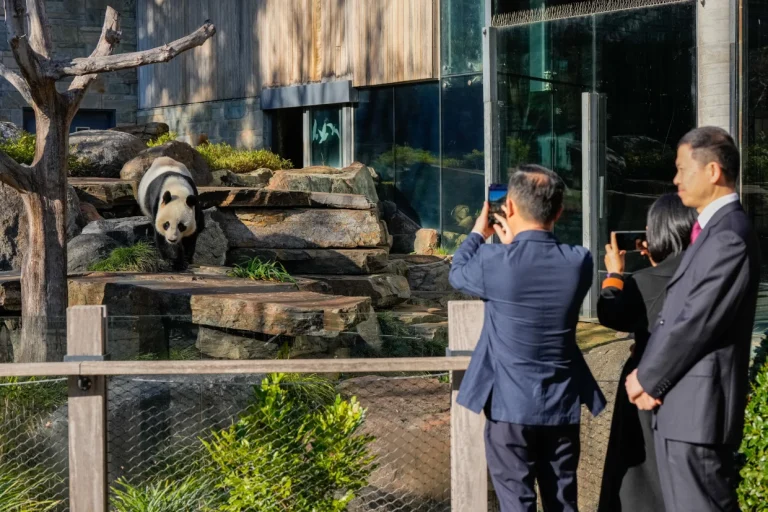Chinese Premier Li Qiang visited Wang Wang, a panda already on loan to Adelaide Zoo, remarking that the 18-year-old male was “extremely cute, adorable, with a charming innocence.”
Chinese Premier Li Qiang’s visit to Australia on Sunday underscored positive aspects of the bilateral relationship, highlighting shared giant pandas and a revitalized wine trade. During his visit, he announced the provision of a new breeding pair of pandas and called for both countries to set aside differences.
Li, China’s second most powerful leader after President Xi Jinping, arrived in Adelaide, South Australia, late Saturday. South Australia, which saw a significant resumption of its wine exports to China following the removal of crippling tariffs in March, hosted Li’s visit.
Li’s itinerary included a visit to Adelaide Zoo, home to giant pandas Wang Wang and Fu Ni since 2009. He praised the pandas’ charm and announced China’s commitment to loaning another pair to the zoo after Wang Wang and Fu Ni return to China in November.
“The new pandas will be equally beautiful, lively, and cute, continuing the cooperative efforts between China and Australia,” Li stated in Mandarin. He expressed admiration for Wang Wang’s indifference towards his high-profile visitors, noting the panda’s strong attachment to its adoptive home.

Foreign Minister Penny Wong expressed gratitude to Li for ensuring the pandas’ continued presence, emphasizing the economic and tourism benefits they bring to South Australia.
Li’s visit, the first by a Chinese premier to Australia in seven years, marks an improvement in bilateral relations since Prime Minister Anthony Albanese’s election in 2022. Li acknowledged the recent positive trajectory in relations, citing mutual respect, cooperation, and the pursuit of common ground as essential for fostering enduring ties.
Despite the positive tone, Li’s visit faced protests from both pro-China demonstrators and human rights activists. The trip included discussions on trade issues, including the lifting of trade barriers on Australian exports imposed during previous tensions.
Li’s next stops in Canberra and Western Australia will likely delve into more contentious issues, including recent military clashes in the South China Sea and concerns over the treatment of Australian nationals in China. His visit to a Chinese-controlled lithium processing plant underscores China’s interest in investing in critical minerals, an area of shared concern with Australia’s allies.
Li’s tour, which includes stops in New Zealand and Malaysia, reflects China’s strategic engagement with key regional partners amid global geopolitical shifts.

